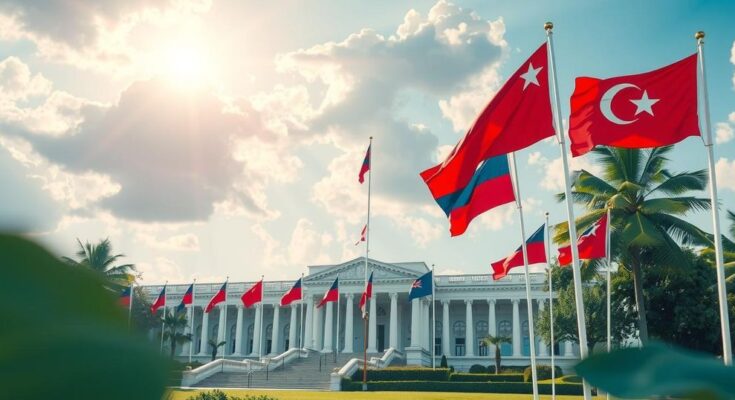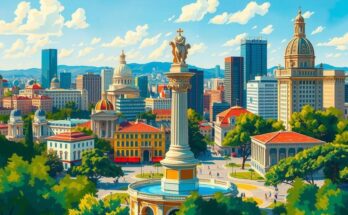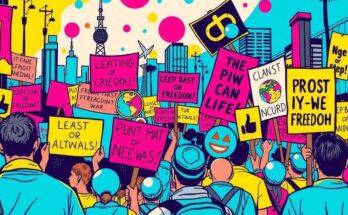Ecuadorian voters are heading to the polls again amid a security crisis marked by rampant violence and power shortages. President Daniel Noboa, elected in 2023, faces competitor Luisa González. The election will be a critical decision for Ecuador’s future amidst escalating crime and economic instability.
Ecuadorian citizens are set to vote for a new president amid profound security challenges, marking the second electoral round in just 18 months. President Daniel Noboa, elected in 2023 to complete Guillermo Lasso’s term, faces his rival Luisa González as voters consider continuing his anti-crime policies or opting for a new direction.
Daniel Noboa, at 37, emerged as an unexpected choice in the 2023 elections. Running as a center-left candidate, he has since adopted stringent measures against crime and violence. In response to escalating gang activities, Noboa has declared states of emergency and initiated the construction of a maximum-security prison.
His assertive actions include labeling illicit groups as terrorist organizations. Notably controversial was his decision to arrest former Vice President Jorge Glas from the Mexican embassy, showcasing his willingness to break diplomatic norms. Noboa has also fostered strong ties with the United States, advocating for military cooperation to combat drug trafficking and attending President Donald Trump’s inauguration.
Noboa is contending against González, a leftist candidate with substantial backing from former President Rafael Correa. She has committed to fighting drug violence similarly to Noboa and advocates for reorganizing prison management and beefing up justice administration. The election could lead to a runoff if no candidate secures over 50% of the votes.
Ecuador is facing escalating violence, exacerbated by its emergence as a center for cocaine trafficking, located between Peru and Colombia. This shift has significantly increased the homicide rate and intensified conflicts involving criminal organizations vying for control. The assassination of candidate Fernando Villavicencio prior to the last election exemplifies these dangers.
In addition to crime, the country confronts an energy crisis triggered by drought conditions associated with the El Niño phenomenon. Government-mandated power cuts have affected citizens, as hydroelectric plants struggle to function optimally. With economic indicators declining, Ecuador’s next president will need to navigate a precarious economic landscape and energy shortfalls.
Ecuador is grappling with a severe security crisis fueled by drug trafficking, and upcoming elections are pivotal. President Daniel Noboa, who succeeded Guillermo Lasso, has faced challenges such as increased violence and power shortages during his term. Conversely, Luisa González, representing a return to former leftist leadership, presents a contrasting approach to addressing crime and energy issues in the country. The political landscape is shaped by the fallout from Ecuador’s drug trade, now emerging as a crucial transit point for cocaine. A profound spike in violence and crime rates underscores this crisis, and candidates’ positions on these matters are of paramount importance to voters amidst calls for strategic reform in governance.
As Ecuador votes amid severe security and economic crises, the electoral choice is crucial for shaping the nation’s future. President Noboa’s tough stance against crime faces scrutiny against González’s promises of revitalization based on past leadership. Voters are tasked with determining which direction will effectively combat violence and rejuvenate the country’s energy and economy. Whomever emerges victorious will inherit the challenge of stabilizing a nation in turmoil.
Original Source: www.cnn.com




